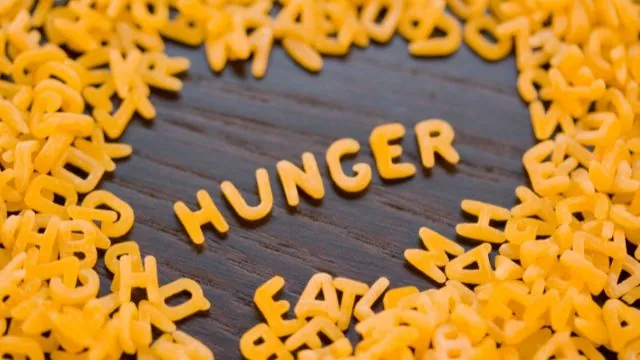
Why We Feel Hungry and How to Control Appetite Effectively
Have you ever wondered why some days you feel hungry all the time, while other days you barely have an appetite? Or why dieting often leads to increased hunger, making it harder to stick to your weight loss goals? This isn’t just about “willpower”—it’s a complex biological process controlled by hormones and genetics. Today, we’ll explore the mechanisms of hunger and satiety and how to effectively manage your appetite for better health.
Our body regulates appetite through a complex system controlled by two primary hormones: Leptin and Ghrelin.
Leptin is a hormone produced by fat cells that signals to the brain when we have enough energy stored. The more body fat we have, the higher our leptin levels, making us feel full more easily.
However, people with obesity often experience leptin resistance, meaning their brain does not properly receive the “full” signal. As a result, they continue eating even when they have sufficient fat stores.
Ghrelin is released by the stomach when we are hungry and decreases after we eat. It plays a key role in triggering hunger cravings, particularly for high-calorie foods like carbohydrates and sugar.
Moreover, people with irregular eating patterns, such as shift workers, often have abnormal ghrelin levels, making them feel hungrier than usual.

In addition to hormones, genetics also play a crucial role in regulating appetite, particularly through the MC4R (Melanocortin 4 Receptor) gene.
People with a normally functioning MC4R gene can recognize satiety signals and stop eating when they have enough energy.
However, individuals with an MC4R gene mutation may not receive proper satiety signals, causing them to feel hungry more frequently and eat more than necessary.
Approximately 0.3% of the population carries an MC4R mutation, meaning thousands of people naturally experience increased hunger compared to others.


When we restrict calories to lose weight, the brain perceives this as a threat to survival and responds by:
This is why many people experience weight regain (yo-yo effect) after dieting—because the body naturally fights against weight loss to maintain energy balance.
Different macronutrients affect hunger and satiety in unique ways:
🥩 Protein – Provides the highest level of satiety since it takes longer to digest and requires more energy to metabolize (Thermic Effect of Food). This helps reduce hunger in subsequent meals.
🥑 Fat – Offers moderate satiety and stable energy but can trigger cravings if consumed without sufficient protein.
🍞 Carbohydrates – Provide quick satiety but do not last long, especially simple carbs (sugar and refined grains), which cause rapid blood sugar spikes followed by crashes, leading to increased hunger later.
For appetite control, prioritizing protein intake while reducing simple carbohydrates can help manage hunger effectively.


Eat enough protein in each meal – Helps promote longer satiety and reduces cravings.
Maintain a consistent eating schedule – Supports balanced hunger and satiety hormone regulation.
Get enough sleep – Sleep deprivation increases ghrelin levels, making you feel hungrier.
Reduce sugar and processed food intake – Prevents blood sugar fluctuations that trigger hunger.
Exercise regularly – Helps regulate hormones and boosts metabolism.
Hunger and satiety are not just matters of “self-control”—they are biologically driven processes influenced by hormones and genetics. If you struggle with frequent hunger or maintaining a healthy diet, choosing the right foods, keeping a regular eating schedule, and prioritizing overall health can help you manage appetite more effectively and prevent unnecessary overeating.
